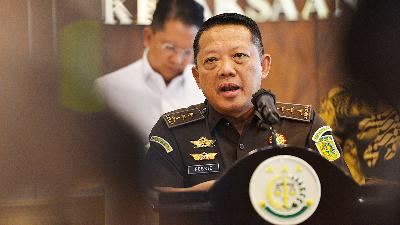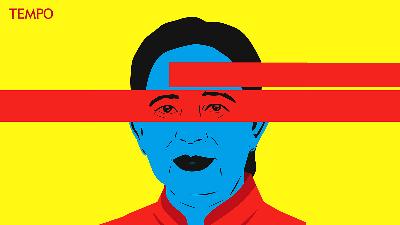Time to Deter Illegal Animal Traders
Monday, June 3, 2024
The illegal animal trade continues because law enforcers are often involved. The perpetrators are never deterred because the punishments are very lenient.
arsip tempo : 174495591648.

THE illegal animal trade in Indonesia continues without any sign of its ending. Although every year, dozens of cases come to light, the root of the problem of this illegal activity is never properly addressed.
Collaboration between Tempo and a number of media in the Animal Protection Project has uncovered the smuggling of endemic Papuan wildlife such as birds of paradise, Papuan monitor lizards, yellow-crested cockatoos and wallabies to Makassar. From there, these rare animals are smuggled and traded in a number of nations such as Vietnam, Malaysia, China and the Philippines.
The black market is a favorite place for collectors of exotic animals such as birds of paradise, which command extremely high prices. Although it is often uncovered, the bird of paradise smuggling is still rampant, as was discovered on April 19 in the port of Baubau, Southeast Sulawesi.
As well as on the black market, the illegal trade in wild animals takes place openly on social media like Facebook. There, a number of rare animals are bought and sold at prices from hundreds of thousands to millions of rupiah. The Financial Transaction Reports and Analysis Centre estimates that annual losses to the state as a result of the illegal trade in animals amount to Rp13 trillion.
Every year, law enforcement officers apprehend many people involved in the illegal animal trade. According to the Environment and Forestry Ministry, the case files of 227 instances of illegal trade in animals and plants were declared complete by the Attorney General’s Office from 2018 to 2022. But the illegal trade in animals still continues.
This is because law enforcement officers have never really completely dismantled the illegal animal trading networks. Moreover, not infrequently law enforcement officials collaborate with the perpetrators of illegal trade to safeguard their transactions. In a number of cases, members of the Indonesian Military have been proved guilty of involvement in the smuggling of rare animals. Were they severely punished? No.
According to Law No. 5/1990 on the Natural Resource and Ecosystem Conservation (KSDAE), those found guilty of illegal trade in animals and plants can be jailed for up to five years or fined Rp100 million. But even if the maximal penalties are handed down, they are still trivial punishment for an environmental crime with such a long-term impact, especially if the sentences are then reduced. It is understandable that many of the perpetrators are repeat offenders. They are not deterred because the penalties are so lenient.
There is a proposal to revise the KSDAE Law by increasing the punishment for those found guilty of crimes involving animals from five to 20 years in jail. It is hoped that more severe penalties will provide a better deterrent effect. But we know that in this nation the threat of severe punishment on paper is often not enough.
Seriousness on the part of law enforcement officials and widespread public support are needed to stop the illegal hunting and trade of animals. We do not want future generations to only hear stories of exotic birds of paradise that are already extinct. And we do not want the Sumatran tiger to end up like the Javanese tiger: nothing more than a legend.











